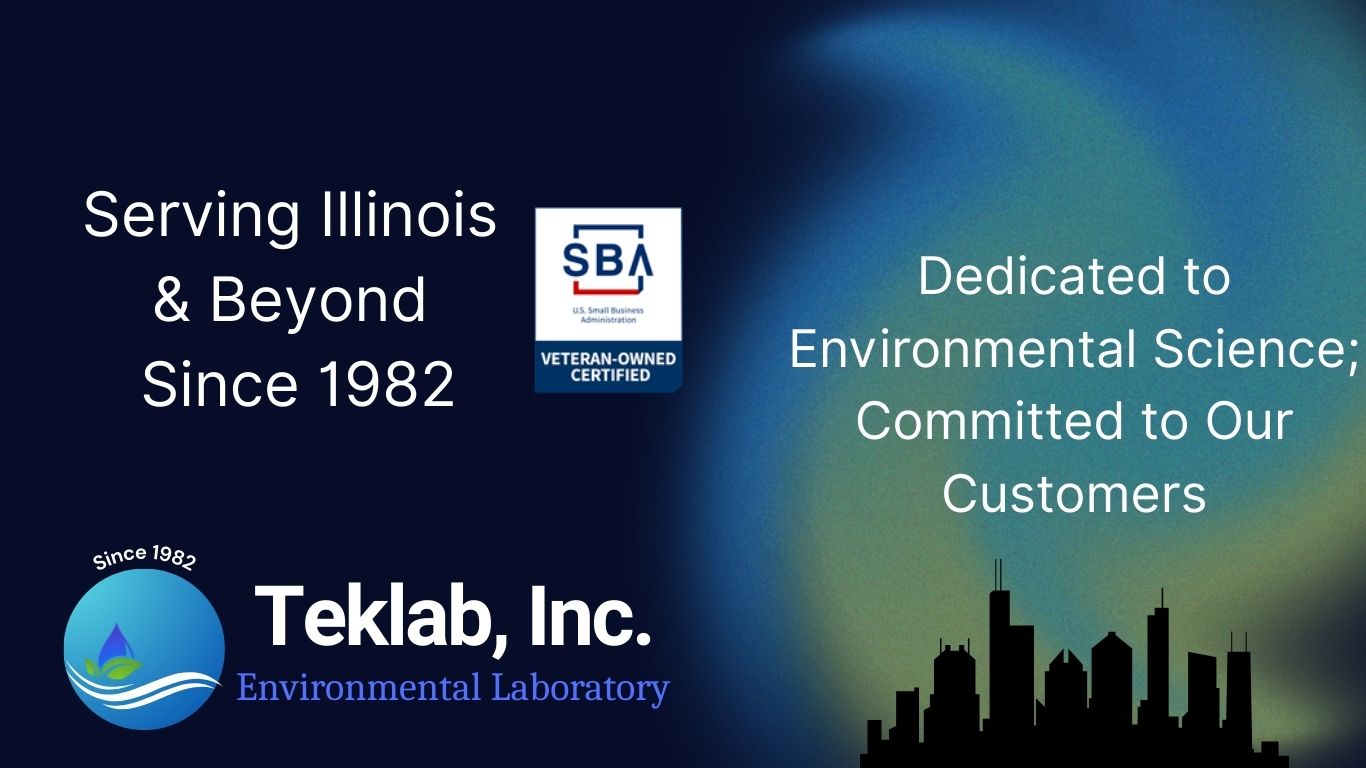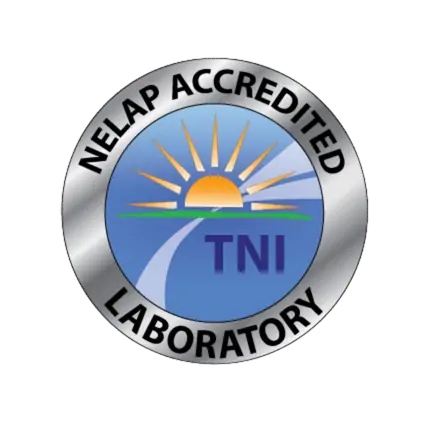ICP uses a high-temperature plasma to excite atoms in the sample, producing light emissions at characteristic wavelengths. This allows for the detection and quantification of multiple elements simultaneously.
Metals
Metals testing is the critical analysis of materials to determine their metallic content, composition, or properties. We focus on detecting trace metals in soils, water, and air. This evaluates characteristics for regulatory compliance in environmental protection by testing for toxic elements like lead, arsenic, and cadmium, etc.
Comprehensive Analysis of Semi-volatile Organic Compounds
At Teklab, we specialize in the precise testing of a wide variety of Semi-volatile Organic Compounds (SVOCs) to meet the rigorous demands of industrial, municipal, and regulatory clients. Our advanced environmental laboratory routinely analyzes soils, waters, and special wastes using state-of-the-art methods, ensuring that every test we conduct is both accurate and reliable. From BNA and PAH testing to pesticides and herbicides, our comprehensive list of semi-volatile methods is designed to address your specific needs.
Understanding that many unique organic compounds exist, and local regulatory agencies may require testing beyond standard EPA or SW846 lists, Teklab performs validation studies to ensure your particular compound can be accurately extracted and analyzed. We pride ourselves on maintaining NELAP accreditation standards, providing you with trustworthy and legally defensible results. Whether your testing requirements are routine or specialized, Teklab’s commitment to quality and precision ensures that your environmental testing needs are met with the highest level of expertise.
Advanced Instrumentation

Quality Control and Data Validation
- Calibration and Standards
The accuracy of metal testing is ensured through the use of calibration standards, method blanks, and quality control samples. These checks help verify that the instruments are functioning correctly and that results are reliable.
- Accredited Methods
Teklab follows stringent, NELAP-accredited methods (such as EPA 200.7, 200.8, and 6010B) to ensure that results meet industry and regulatory standards.
- Data Review
After analysis, our experienced quality control and validation chemists review the data to confirm accuracy and consistency. This ensures that any potential issues are identified and addressed before the final report is generated.
Reporting Results
- Detailed Reports
We provide comprehensive reports that include the concentration of metals detected, method details, quality control results, and regulatory compliance information.
✳Our testing services help clients meet regulatory requirements set by the EPA, state agencies, and other governing bodies.
Common Metals Tested for Include
➡Heavy Metals: Lead (Pb), Cadmium (Cd), Mercury (Hg), and Arsenic (As)
➡Nutrients and Trace Metals: Iron (Fe), Copper (Cu), Zinc (Zn), and Nickel (Ni)
By employing rigorous testing protocols and advanced instrumentation, Teklab delivers accurate and timely results that help our clients protect the environment and comply with regulatory standards.
If you need assistance or have any questions about our analytical procedures, please navigate to the Contact Us page to learn more about how our comprehensive metal testing services can help support your project.
Professional trace element testing of metals is crucial for environmental compliance because it ensures that environmental samples—such as water, soil, and air—meet regulatory standards and do not pose risks to human health or ecosystems. Metals, even in trace amounts, can be toxic or harmful when they accumulate, making precise and accurate testing essential for monitoring and controlling their presence.

Teklab is a NELAC-accredited environmental testing laboratory that provides controlled testing for standard metal constituents as required by various regulatory authorities across jurisdictions.


